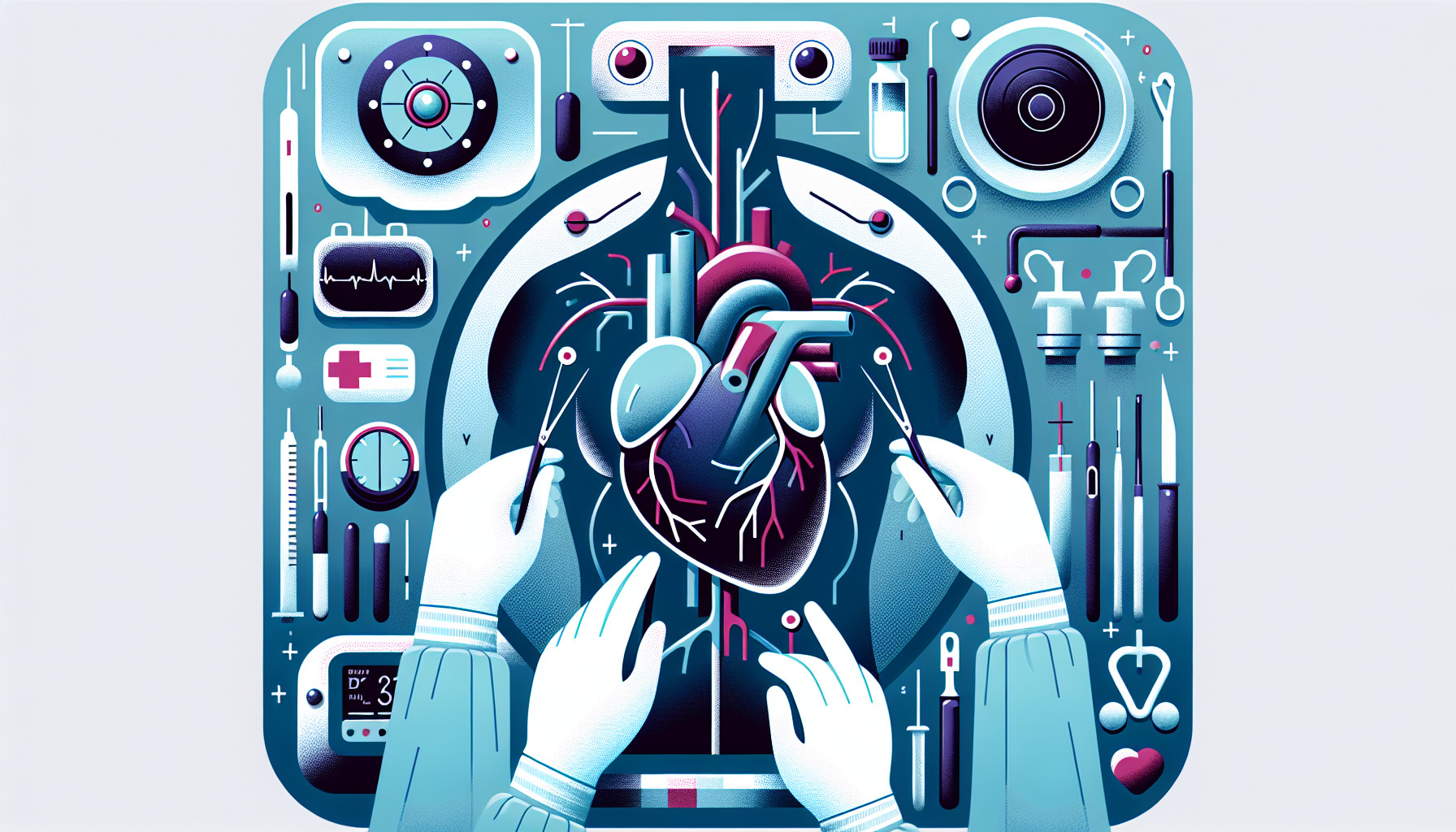Our Summary
This research paper discusses the link between the quality of care, the number of cases, and the results in coronary artery bypass grafting (a type of heart surgery). Previous studies have found that sticking to high-quality care standards improves the survival rates and outcomes of the surgery. However, these standards for quality are not clearly defined and their importance is still unclear to surgeons and healthcare providers. The paper aims to clarify the concept of “quality and quality measurements” and discuss their role in this type of heart surgery.
FAQs
- What is the association between care quality, case volume, and outcomes in coronary artery bypass grafting?
- What is the significance of quality metrics in coronary artery bypass grafting to surgeons and healthcare providers?
- How does consistent adherence to quality measures affect mortality rates in coronary artery bypass grafting?
Doctor’s Tip
A helpful tip a doctor might tell a patient about coronary artery bypass is to follow a healthy lifestyle post-surgery, including maintaining a balanced diet, regular exercise, and taking prescribed medications as directed. Additionally, attending follow-up appointments and adhering to recommended lifestyle changes can help improve long-term outcomes and reduce the risk of future heart issues.
Suitable For
Patients who are typically recommended for coronary artery bypass grafting (CABG) are those who have severe coronary artery disease that cannot be adequately treated with medications, lifestyle changes, or less invasive procedures such as angioplasty. These patients may have:
- Severe blockages in multiple coronary arteries
- Left main coronary artery disease
- Severe symptoms such as chest pain (angina) that significantly impact their quality of life
- Previous heart attacks or other serious heart conditions
Additionally, patients who are at high risk for complications from their coronary artery disease, such as heart failure or arrhythmias, may also be recommended for CABG. Ultimately, the decision to undergo CABG is made on a case-by-case basis by a team of healthcare providers, including cardiologists and cardiac surgeons, who consider the individual patient’s medical history, symptoms, and overall health.
Timeline
Before coronary artery bypass surgery:
- Patient undergoes diagnostic tests such as angiography to determine the extent of blockages in the coronary arteries.
- Patient may undergo medical management and lifestyle changes to control symptoms of coronary artery disease.
- Patient may participate in cardiac rehabilitation programs to improve overall heart health.
- Patient may receive counseling and education on the risks and benefits of coronary artery bypass surgery.
After coronary artery bypass surgery:
- Patient is closely monitored in the intensive care unit immediately following surgery.
- Patient may experience pain and discomfort at the incision site.
- Patient may be prescribed medications to manage pain and prevent infection.
- Patient begins cardiac rehabilitation program to help with recovery and improve heart health.
- Patient follows up with cardiologist and surgeon for regular check-ups and monitoring of heart health.
What to Ask Your Doctor
- What are the risks and benefits of undergoing coronary artery bypass surgery?
- How many of these procedures have you performed and what is your success rate?
- What is the expected recovery time and what post-operative care will be required?
- Are there any alternative treatment options available?
- What lifestyle changes will be necessary after surgery to prevent future heart problems?
- How will the success of the surgery be monitored and evaluated?
- What are the potential complications and how will they be managed?
- What is the long-term outlook for someone who undergoes coronary artery bypass surgery?
- How can I best prepare for the surgery, both physically and emotionally?
- Are there any specific questions or concerns I should discuss with other members of the healthcare team before the surgery?
Reference
Authors: Khan FM, Hameed I, Milojevic M, Wingo M, Krieger K, Girardi LN, Prager RL, Gaudino M. Journal: Int J Surg. 2019 May;65:7-12. doi: 10.1016/j.ijsu.2019.03.007. Epub 2019 Mar 15. PMID: 30885838
